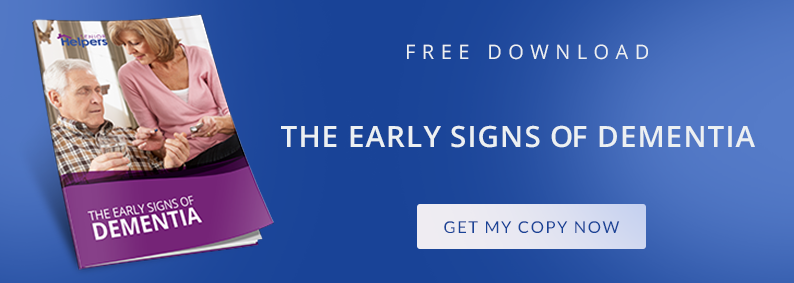The words Alzheimer’s and dementia are often used interchangeably. You may think these words refer to the same condition. In fact, Alzheimer’s and dementia aren’t the same thing. There are some key differences between the two. Here’s what you need to know about the differences between Alzheimer’s and dementia.
Dementia is a Set of Symptoms
Dementia isn’t a specific disease. It refers to a set of symptoms that involve cognitive changes and psychological changes. These cognitive changes could include memory loss, difficulty finding words, or disorientation. Psychological changes could include paranoia, inappropriate behaviour, or depression. If your loved one has been diagnosed with dementia, they’ve been told they have a specific symptom.
Dementia is a clue doctors can use to diagnose diseases, just like any other symptom. For example, sneezing could be a clue that you have a cold or allergies. An upset stomach could be a sign you have food poisoning or a digestive disorder. In the same way, dementia is a sign of many possible disorders.
If your loved ones show any of the 10 early signs of dementia, encourage them to visit a doctor to get a clear sense of their condition.
Alzheimer’s Is a Specific Disease
While dementia refers to a set of symptoms, Alzheimer’s is a specific disease. When people have dementia symptoms, they could end up being diagnosed with Alzheimer’s. It’s the most common cause of dementia among people age 65 and older.
There’s no single test doctors can use to diagnose someone with Alzheimer’s. A diagnosis is made following careful medical evaluation. This evaluation could include mental status testing, a physical and neurological exam, or brain imaging tests. After all possible causes of the dementia have been considered, your loved one may be diagnosed with Alzheimer’s.
Dementia Symptoms May Be Reversible
Some types of dementias can be treated, and the symptoms can be reversed. For example, people could develop dementia-like symptoms due to the side effects of medication. Interactions between different medications can also lead to this effect.
Some types of infections can cause dementia symptoms, too. Encephalitis, an infection of the brain, or meningitis, an infection of the membranes covering the brain can have this effect. Untreated Lyme disease is another possible cause of dementia.
Even nutritional deficiencies can lead to dementia symptoms. For example, people who are deficient in thiamin or niacin could develop these symptoms. Dehydration is another possible cause of dementia.
Other types of dementias aren’t reversible, such as when caused by degenerative disease or caused by trauma. This is like any other symptom you could encounter. Sometimes, doctors can treat the condition that’s causing the symptoms. Other times, the symptoms become chronic.
Alzheimer’s Worsens Over Time
While some causes of dementia can be reversed, that isn’t the case for Alzheimer’s. It’s a progressive disease with symptoms that worsen over time. The symptoms gradually get worse over a number of years. People with Alzheimer’s usually live an average of eight years after other people notice their symptoms, but it’s possible to live for 20 years. Alzheimer’s is the seventh-leading cause of death in Canada.
Right now, there’s no cure for Alzheimer’s. It’s a heavily researched condition, however, so there could be a cure in the future. For now, there are treatments available to temporarily slow the worsening of the symptoms. These treatments can improve quality of life for people with Alzheimer’s. For example, the medications can help lessen symptoms of memory loss and confusion.
Since Alzheimer’s is a progressive disease, those living with it have changing needs. Over time, they could need more caregiving support or different types of support. You may not feel well equipped to independently care for a loved one with Alzheimer’s. Rest assured that Alzheimer’s care is available, and you can get professional caregiving help when you need it. Resources and online support from organizations like the Alzheimer Society of Canada can offer reliable expertise to help family members, care givers, and senior loved ones.


